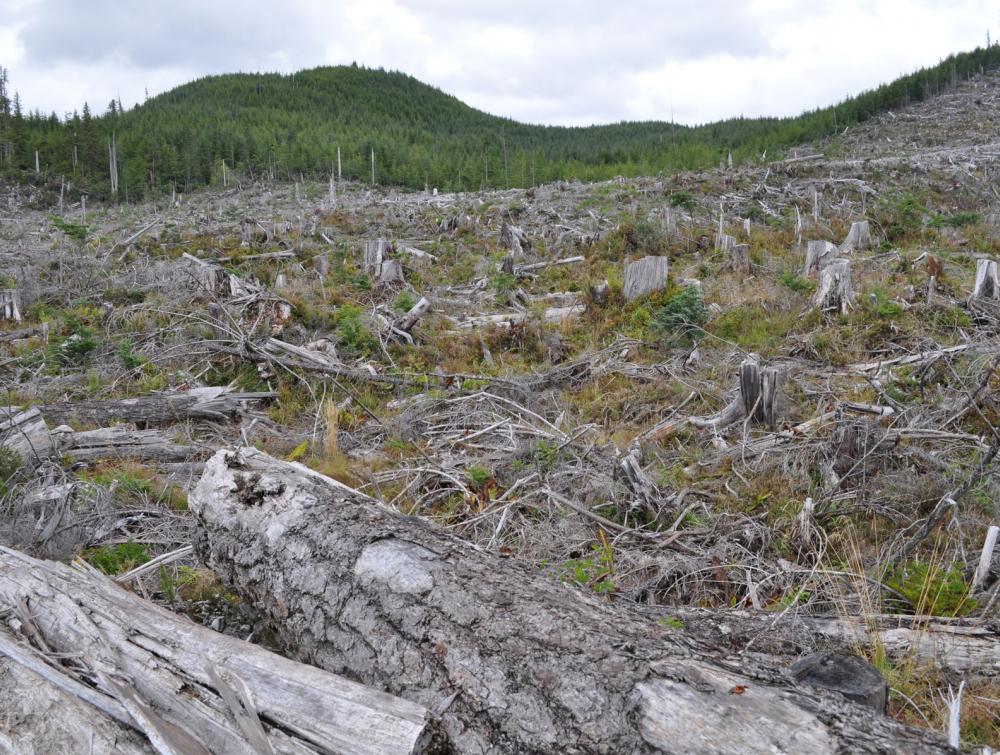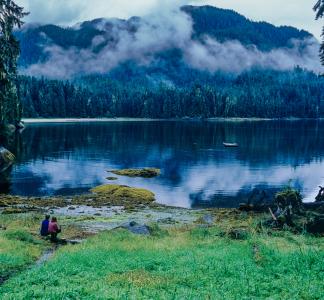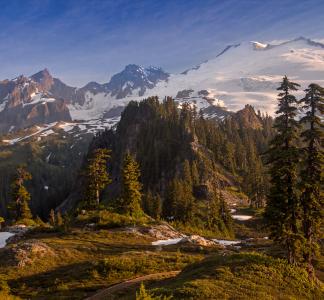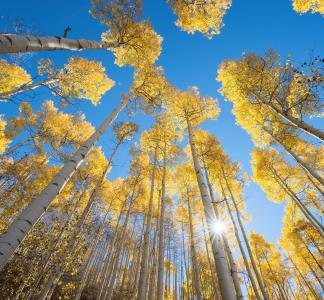How Trump helped pay the timber industry to attack wild forests in Alaska

Felled trees in Tongass National Forest, Alaska
Alaska Wilderness League
State re-directed fed grants to trade group; tribal partners left in the cold
The timber industry wants free rein to log and develop in the Tongass National Forest. Alaska politicians and the Trump administration want to help. New reports show those interests converged with a powerful trade group receiving hundreds of thousands of dollars drawn by the state from a U.S. Forest Service grant.
Alaska paid out more than $200,000 to a logging and forestry trade group in order to gain “industry perspective.” The local Kake tribe has not received a similar grant.
A Freedom of Information Act (FOIA) request filed by The Wilderness Society recently uncovered evidence of this relationship. In 2018, the U.S. Forest Service announced it would review a proposal by the state of Alaska to exempt the state from the Roadless Rule, opening up millions of acres of old-growth forest in the Tongass to logging. Then, in a move called “just weird” by the head of a Forest Service watchdog group, Alaska received $2 million in federal grants to help officials study the benefits of such a change. In essence, the Trump administration paid Alaska to lobby the Trump administration to do what Alaska wanted.
But it gets worse. Of those Forest Service grants, Alaska’s Division of Forestry paid out more than $200,000 to the Alaska Forest Association, a logging and forestry trade group, in order to gain “industry perspective” about the effects of allowing more logging (no surprise: they support it).
The state doesn’t seem to care as much about gaining the perspective of groups trying to keep roadless forests protected. Notably, the president of the Organized Village of Kake, a tribal community whose food sources could be threatened by development in the Tongass, says his cash-strapped government has not received similar funding, despite being included as a “cooperating agency” on decisions concerning the Roadless Rule.
“This is a thoroughly corrupt partnership between lawmakers, the timber industry and federal agencies that manage public land for the American people,” said Mike Anderson, Wilderness Society senior resource analyst for national forest policy. “Instead of seeking input from the tribal communities and the public at large, and protecting Alaska’s wildlands, we see the lawmakers and agencies tilting the scales in favor of powerful corporate interests.”
Indeed, timber has seemingly always had an inside track when it comes to the Tongass in particular. In 2017, Forest Service documents emerged that showed Tongass National Forest staff cut corners and gave favorable treatment to industry in managing timber sales. And when then-Governor Bill Walker picked an advisory panel to weigh the pros and cons of suspending the Roadless Rule in the Tongass in 2018, the group was loaded with logging and mining interests—and notably light on representation from the burgeoning tourism industry.
The Alaska Forest Association has played a prominent role in such efforts for decades. In this work, they have retained the services of the same notorious lobbying firm hired by former Alaska Governor Sarah Palin to secure $27 million in questionable federal earmarks for the small town of Wasilla.




